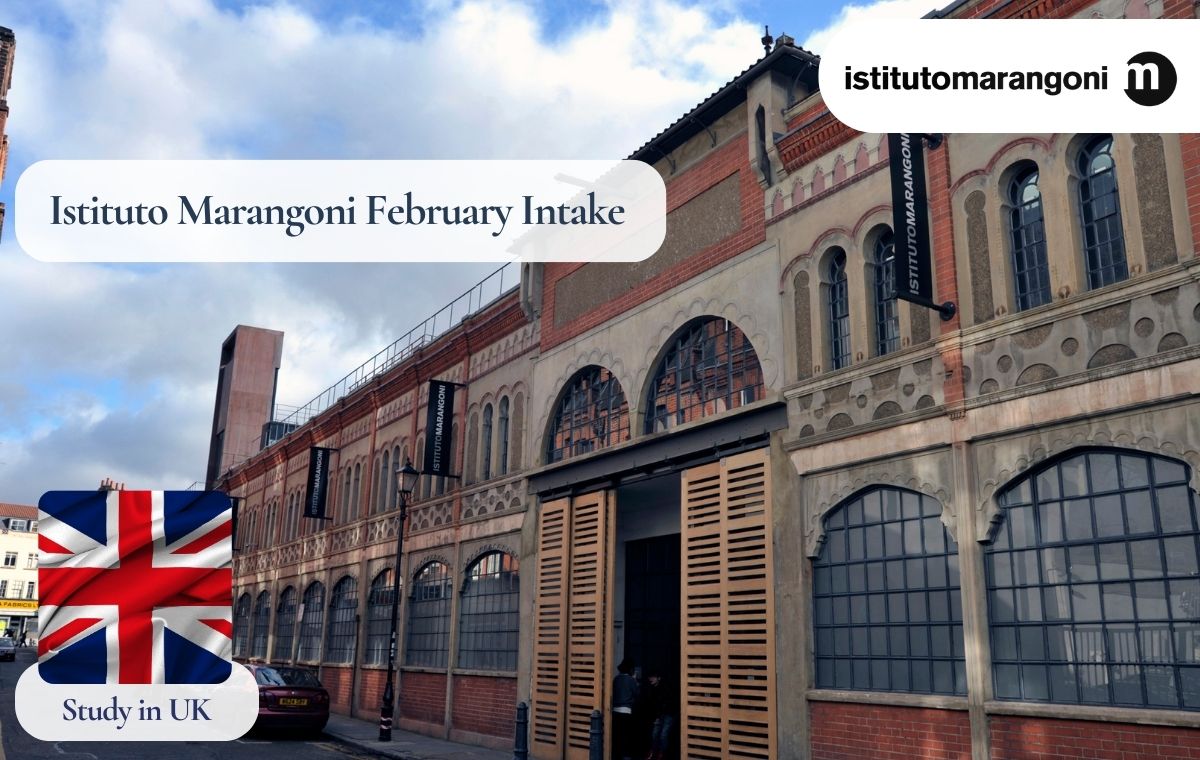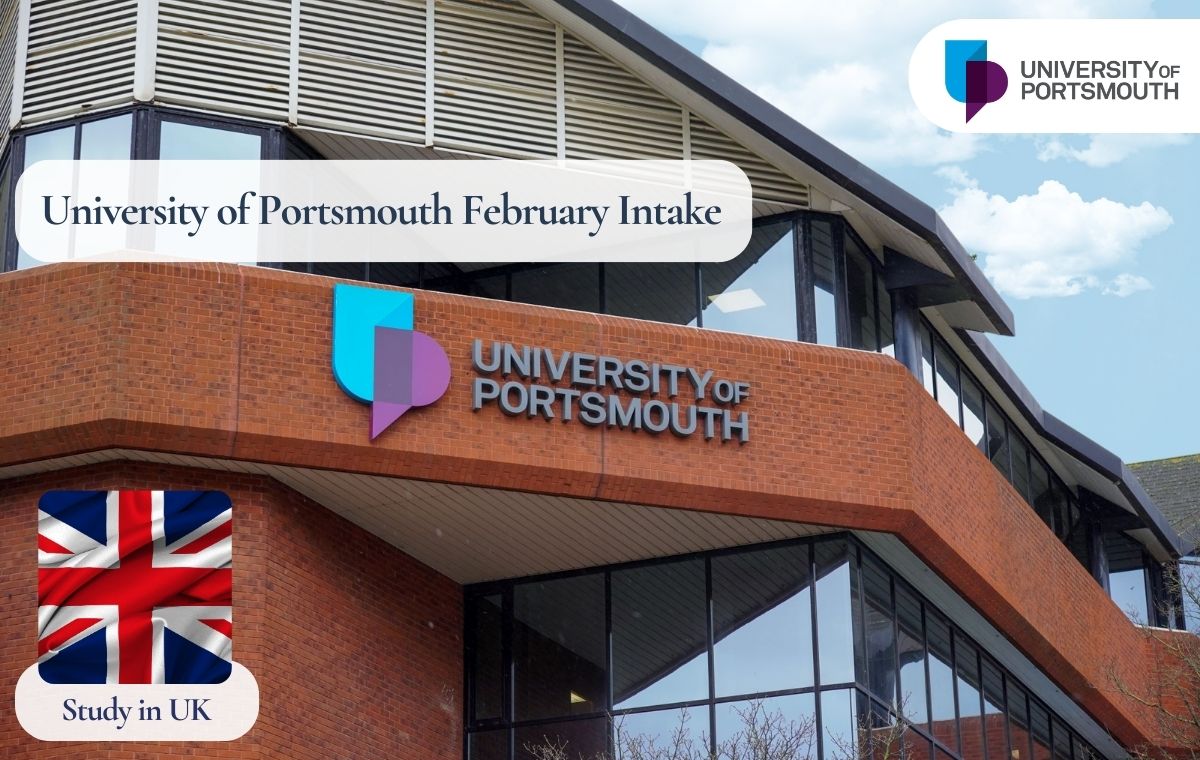Table of Content
- Overview
- Cost of Studying in UK - Best Colleges with Tuition Fees
- Check and Find Detailed Information on the Cost of Studying in the Top Public Colleges
- Course-Wise Costs of Studying
- Average Cost of Living in UK for Indian Students
- UK Student Visa Application Expenses
- Tips and Suggestions To Manage the Cost of Studying in UK for Indian Students
- FAQ
Cost of Studying in UK - Overview
Considering the cost of studying in the UK before admission is crucial for several reasons. Firstly, the UK is one of the most expensive countries in the world to pursue higher education, with tuition fees ranging from £10,000 to £38,000 (approximately $13,000-$50,000 USD) per year. Additionally, living costs, including accommodation, food, and transportation, can add up to £8,000 to £12,000 (approximately $10,000-$16,000 USD) per year.
You must carefully consider these costs to avoid facing financial difficulties during your studies. This can lead to stress, and anxiety, and even impact your academic performance. Moreover, failing to budget for these expenses can result in accumulating debt, which can be challenging to repay.
By considering the cost of studying in the UK before admission, you can make an informed decision about your financial situation and explore available options, such as scholarships, grants, or part-time jobs. This will enable you to create a realistic budget, plan your finances effectively, and enjoy a more stable and successful academic experience in the UK.
Learn about the cost of studying in UK for Indian students with the below-mentioned table. This table refers to what you need to spend before studying in UK too:
| Expense Category | Cost in INR |
| Ticket Cost | ₹50,000 – 1,00,000 |
| Visa and Other Costs | ₹40,000 – 60,000 |
| Travel Expenses | ₹5,000 – 10,000/month |
| Accommodation | ₹50,000 – 1,50,000/month |
| Tuition Fees | ₹8,00,000 – 20,00,000/year |
| Other Costs | ₹5,000 – 15,000/month |
Cost of Studying in UK - Best Colleges with Tuition Fees
When exploring the cost of studying in the UK, it is clear that tuition fees play a vital role in shaping a student’s overall expenses. Understanding the financial aspects of pursuing education in the UK is crucial to making informed decisions. We have provided tuition fees for both public and private colleges. Use the information to decide which UK college you want to study at. Below you will find detailed information on the cost of studying at the best private colleges:
University of Buckingham
Located in the picturesque town of Buckingham, the University of Buckingham offers an intimate learning environment with small class sizes. Known for its two-year undergraduate degrees, it provides students with a fast-track option for their studies. The tuition fees range between ₹10,00,000 – ₹15,00,000 per year, depending on the program. The campus is close to major cities like London and Oxford, offering both tranquility and accessibility. Living expenses, including accommodation, typically range from ₹50,000 – ₹1,00,000 per month, making it a great option for students seeking a mix of affordability and academic excellence.
Regent's University London
Located in central London, Regent's University offers a world-class education with a focus on business, humanities, and creative arts. Nestled in Regent's Park, the campus provides a serene yet cosmopolitan experience. Tuition fees for undergraduate programs are approximately ₹20,00,000 – ₹25,00,000 per year, with some specialized programs costing more. Being in London, living expenses are higher, ranging from ₹1,00,000 – ₹1,50,000 per month, including accommodation, transport, and personal expenses. The university's strong industry links and diverse student community make it a sought-after destination for aspiring global leaders.
University of Law
The University of Law specializes in legal education and boasts campuses in major UK cities like London, Birmingham, and Manchester. Tuition fees for undergraduate law programs start at ₹9,00,000 – ₹12,00,000 per year, while postgraduate courses may cost slightly more. Its location in bustling cities offers students access to legal firms and networking opportunities. Accommodation and living costs vary by city, ranging from ₹70,000 – ₹1,50,000 per month. The university is renowned for its employability-focused curriculum, ensuring students are well-prepared for careers in law and beyond.
BPP University
BPP University is a leading private institution focusing on law, business, and healthcare programs. With campuses in London, Manchester, and Birmingham, students benefit from strong industry ties and real-world learning. Tuition fees range from ₹10,00,000 – ₹14,00,000 per year, depending on the course. Accommodation and living expenses in cities like London average ₹1,00,000 – ₹1,50,000 per month, while smaller cities like Manchester may cost ₹70,000 – ₹1,00,000 per month. Known for its professional focus, BPP ensures students are career-ready upon graduation.
St. Mary’s University
Located in Twickenham, London, St. Mary’s University is known for its vibrant campus life and wide range of undergraduate and postgraduate programs. Tuition fees are approximately ₹8,00,000 – ₹12,00,000 per year, depending on the program. The suburban location offers slightly lower living costs compared to central London, with accommodation and expenses ranging from ₹80,000 – ₹1,20,000 per month. With a focus on research, sports, and a community-oriented approach, the university provides a balanced academic and social experience.
Royal Conservatoire of Scotland
Located in Glasgow, the Royal Conservatoire of Scotland (RCS) is a prestigious institution for performing arts education. Tuition fees for undergraduate programs range from ₹15,00,000 – ₹20,00,000 per year, depending on the discipline. Glasgow, being a student-friendly city, offers relatively affordable living costs, ranging from ₹60,000 – ₹1,00,000 per month for accommodation and other expenses. RCS is renowned for its rigorous training in music, drama, dance, and film, making it an excellent choice for aspiring artists and performers.
Check and Find Detailed Information on the Cost of Studying in the Top Public Colleges:
University of Oxford
Located in Oxford, the University of Oxford is a world-renowned institution offering diverse programs. Its tuition fees range from ₹25,00,000 – ₹35,00,000 per year, depending on the program. As a historic city, Oxford provides a blend of academic prestige and cultural charm. Living expenses, including accommodation, average ₹80,000 – ₹1,20,000 per month. Known for its rigorous academics, state-of-the-art libraries, and global alumni network, Oxford is a top choice for students aspiring for excellence.
University of Cambridge
Situated in Cambridge, this iconic university is famous for its cutting-edge research and academic rigor. Tuition fees range between ₹25,00,000 – ₹35,00,000 per year. The city’s serene environment offers a conducive setting for learning. Living costs, including accommodation, typically range from ₹80,000 – ₹1,20,000 per month. With its historic colleges and rich traditions, Cambridge attracts students worldwide seeking unparalleled academic opportunities.
University College London (UCL)
Located in the heart of London, UCL is known for its multidisciplinary approach and innovative research. Tuition fees for international students range from ₹20,00,000 – ₹30,00,000 per year. Being in London, living expenses are higher, averaging ₹1,20,000 – ₹1,50,000 per month. UCL offers a vibrant urban campus experience and access to countless career opportunities in one of the world’s most dynamic cities.
Imperial College London
Imperial College London specializes in science, engineering, medicine, and business. Situated in South Kensington, tuition fees range from ₹25,00,000 – ₹35,00,000 per year. Accommodation and living costs average ₹1,20,000 – ₹1,50,000 per month, reflecting its prime London location. With a focus on innovation and research, Imperial provides students with an excellent foundation for careers in technology and science.
University of Manchester
Located in Manchester, this leading research university offers high-quality education at relatively affordable rates. Tuition fees range from ₹15,00,000 – ₹25,00,000 per year. Living expenses are lower compared to London, averaging ₹70,000 – ₹1,00,000 per month. Known for its vibrant student life and strong industry connections, Manchester is a popular choice for international students.
University of Edinburgh
The University of Edinburgh, situated in Scotland’s capital, is celebrated for its historic campus and diverse academic programs. Tuition fees range from ₹15,00,000 – ₹25,00,000 per year. Living expenses, including accommodation, average ₹70,000 – ₹1,00,000 per month. With a stunning cityscape and a rich cultural scene, Edinburgh offers a unique blend of academic and lifestyle benefits.
Course-Wise Costs of Studying
International students looking to study in the UK should be aware of a few key factors, including tuition fees. For lecture-based undergraduate courses, fees typically range from £10,000 to £25,000 per year, while medical courses tend to be higher, averaging £20,000 to £45,000 per year. Postgraduate fees have seen an overall increase, ranging from £12,000 to £30,000 per year. The average cost of a PhD is £15,000 to £25,000 per year.
Undergraduate (UG) Program Costs in the UK
Undergraduate tuition fees in the UK generally range from £10,000 to £25,000 per year for lecture-based courses. Medical programmes charge higher fees, typically between £20,000 and £45,000 per year. It is important to research individual institutions for exact details of fees and to consider additional expenses such as accommodation and living costs.
Postgraduate (PG) Program Costs in the UK
Postgraduate fees in the UK have seen an overall increase and typically range from £12,000 to £30,000 per year. PhD degrees cost on average £15,000 to £25,000 per year. Prospective postgraduate students should explore specific universities and programmes for accurate and up-to-date information on tuition fees and associated expenses.
Average Cost of Living in UK for Indian Students
The average cost of living in the UK for Indian students varies depending on the city, type of accommodation and lifestyle preferences. On average, students can expect to spend between £800 and £1,200 per month in smaller cities, while living in larger cities such as London can push monthly expenses to between £1,200 and £1,800. Careful planning and budgeting can help students manage their costs effectively.
Accommodation Cost in UK
Accommodation is usually the biggest expense for Indian students. Renting university-provided halls of residence can cost between £400 and £800 per month, depending on location and facilities. Private rentals are more expensive, ranging from £500 to £1,200 per month, but sharing flats with other students can reduce costs significantly, often reducing rent to £300-600 per month.
Food and grocery expenses add another £150 to £250 per month. Cooking at home is a cost-effective option, especially compared to eating out regularly, which can be significantly more expensive. Students can find affordable groceries at stores such as Tesco, Aldi or Lidl.
Transportation Cost in UK
Transportation costs depend on the city and travel needs. In smaller cities, students may spend around £30-60 per month on public transport, while in London, a monthly pass for zones 1-2 can cost between £120-150. Many universities also offer free shuttle services or discounted travel tickets for students, further reducing these costs.
Utilities Cost in UK
Utilities such as electricity, water and internet may not always be included in the rent, especially in private accommodation. These can add £50-100 per month to living expenses. In addition, students spend on books, supplies, mobile phone plans and leisure activities, which can total around £50-150 per month.
Healthcare Cost in UK
Healthcare is another consideration. Indian students are required to pay a National Health Service surcharge of £470 per year during the visa application process. These fees cover most healthcare services, providing peace of mind and eliminating unexpected medical costs.
By taking advantage of student discounts, budgeting effectively, and choosing cost-effective options such as shared accommodation and public transport, Indian students can manage their expenses while enjoying a satisfying study experience in the UK.
UK Student Visa Application Expenses
The process of applying for a UK student visa involves several expenses that Indian students need to consider while budgeting. Here is a detailed breakdown of the costs:
Student Visa Fee
The standard application fee for a Student Visa (Tier 4) is £363 (around Rs. 36,000) when applying from outside the UK. This fee may vary slightly due to currency fluctuations. For priority or super priority services, an additional fee of £250 to £800 applies, depending on the service chosen.
Immigration Health Charge (IHS)
The Immigration Health Charge (IHS) is a mandatory fee for international students to access the UK’s National Health Service (NHS). It costs £470 for each year of residence in the UK. For example, if your course lasts for two years, you will need to pay £940 upfront as part of your visa application.
Tuberculosis (TB) Test
Indian students are required to undergo a TB test at an accredited clinic in the UK as part of their visa application. The test costs around Rs 2,000-3,000, depending on the clinic.
Biometric Residence Permit (BRP) Appointment
The biometric fee for taking your fingerprints and photograph is usually included in the visa application fee. If additional appointments are required, there may be an additional fee of £50-200.
Document Translation and Attestation
If your supporting documents are not in English, you will need certified translations, which may cost Rs 500-1,500 per page, depending on the service provider.
Financial Proof Requirements
Although not a direct fee, students must prove that they have sufficient funds to cover their tuition fees and living expenses. The amount required is at least £1,334 per month for 9 months if you are studying in London, or £1,023 per month for 9 months in other parts of the UK. Keeping these funds in a bank account for 28 consecutive days before applying is crucial to avoid delays or refusals.
Travel expenses
Travel costs to and from the Visa Application Centre (VAC) for appointments can add up, especially for students living far from major cities.
Estimated total cost
On average, the total expenses of applying for a UK student visa, including visa fees, IHS, TB testing, and document preparation, range from £1,000 to £1,200 (around Rs. 100,000 to Rs. 120,000).
Planning for these expenses in advance can ensure a smooth visa application process and help students avoid unexpected costs or delays.
Tips and Suggestions To Manage the Cost of Studying in UK for Indian Students
Studying in the UK is a big investment, but Indian students can manage their costs effectively with careful planning and smart financial strategies. Here are some tips and suggestions to help you cut costs and make the most of your budget:
Choose Affordable Cities and Universities
While cities like London offer exciting opportunities, they are also more expensive. Choose universities in smaller or less expensive cities like Manchester, Birmingham or Glasgow, where accommodation and living costs are much lower. Look for scholarships or grants offered by universities that match your budget and goals.
Apply for Scholarships and Grants
Many universities in the UK offer merit-based and need-based scholarships to international students. Organizations like Chevening Scholarships, Commonwealth Scholarships and British Council Scholarships in India offer financial aid to Indian students. Explore these options early to secure funding.
Choose Affordable Accommodation
University-provided accommodation is often more expensive and includes utilities. Alternatively, sharing private flats with other students can significantly reduce costs. Consider living a little further out from city centres, where rents are cheaper.
Cook at Home
Eating out regularly is expensive in the UK. Save money by cooking your own meals and buying groceries from budget-friendly stores such as Aldi, Lidl, Tesco and Asda. Use student discounts or loyalty cards to save even more.
Use Student Discounts
Always carry your TOTUM (NUS) card or university ID card to take advantage of discounts on travel, entertainment, shopping and dining. Many brands and services, such as Amazon Prime, Apple and Spotify, offer special student rates.
Use Public Transport Wisely
Buy student travel passes for buses, trains or the Underground, which offer discounted fares. Walking or cycling shorter distances can save on transport costs. In cities like London, an Oyster card with a student discount is essential.
Work Part-time
International students can work up to 20 hours a week during term time and full-time during holidays. This can help cover living expenses. Look for jobs on campus or at local businesses, which are often flexible with student schedules.
Budget and Track Expenses
Create a monthly budget to monitor spending. Use apps like Mint, YNAB or Emma to track and categorise your expenses. Regularly assess where you can cut unnecessary costs.
Take Advantage of Free University Resources
Take advantage of free university services, such as libraries, counselling and career guidance. Many universities also host free events and workshops, which can help you save on leisure activities.
Save on Healthcare Costs
The Immigration Health Levy (IHS) gives you access to the NHS for most medical needs. Use NHS services instead of private healthcare to avoid extra expenses.
Buy Used Books and Supplies
Instead of buying new textbooks, buy used or digital versions. Many universities have second-hand book shops or exchange programmes where students can borrow or buy books at reduced prices.
Open a Student Bank Account
Many banks in the UK offer student accounts with benefits such as 0% overdraft and cashback on purchases. Compare banks like Santander, HSBC or Barclays to find the best option.
Avoid Currency Conversion Fees
Use international student cards or bank accounts that reduce conversion fees. Services like Wise or Revolut can help you save on international transactions.
By implementing these strategies and paying attention to your spending habits, Indian students can make studying in the UK more financially manageable without compromising on their overall experience.
FAQ
What is the average tuition fee for Indian students in the UK?
Ans - Tuition fees range from £10,000 to £38,000 per year depending on the course and university. Undergraduate courses cost between £10,000 and £20,000, while postgraduate and medical courses are typically more expensive, up to £38,000 per year.
What is the average cost of living for Indian students in the UK?
Ans - The average monthly cost of living is between £800 to £1,200 in smaller cities and £1,200 to £1,800 in London. This includes accommodation, food, transport, utilities and miscellaneous expenses.
Are there scholarships available for Indian students in the UK?
Ans - Yes, scholarships such as Chevening, Commonwealth and GREAT scholarships are available. Universities also offer financial aid based on need and merit. Applying early improves your chances of securing funding.
How can I reduce my accommodation costs in the UK?
Ans - Choose university accommodation or shared flats to save money. Living away from city centres and splitting expenses with flatmates can significantly reduce accommodation costs.
Can Indian students work part-time in the UK?
Ans - Yes, international students can work 20 hours a week during term time and full-time during holidays. This helps cover living expenses and provides valuable work experience.
How much should I set aside for food expenses in the UK?
Ans - Monthly food costs range from £150 to £250. Cooking at home and shopping at budget-friendly stores such as Aldi, Lidl and Tesco can help reduce costs.
Is healthcare expensive for students in the UK?
Ans - Students pay a mandatory Immigration Health Surcharge (IHS) of £470 per year, which gives them access to the NHS. Most healthcare needs are covered, making it affordable.
What are the transport costs for students in the UK?
Ans - Public transport costs £30-60 per month in smaller cities and £120-150 in London. Discounts are available with student cards such as the Oyster card.
Do I need to show proof of funds to apply for a UK student visa?
Ans - Yes, you must show at least £1,334 per month for 9 months if you are studying in London, or £1,023 per month for other areas, plus tuition fees in your account for 28 days.
Can I apply for loans to study in the UK?
Ans - Yes, Indian banks offer education loans that cover tuition fees and living expenses. Make sure you meet the eligibility criteria for the loan and have a co-applicant for approval.







Leave a Reply